#dracula shorthand
Explore tagged Tumblr posts
Text
Dracula, 3rd May; Shorthand
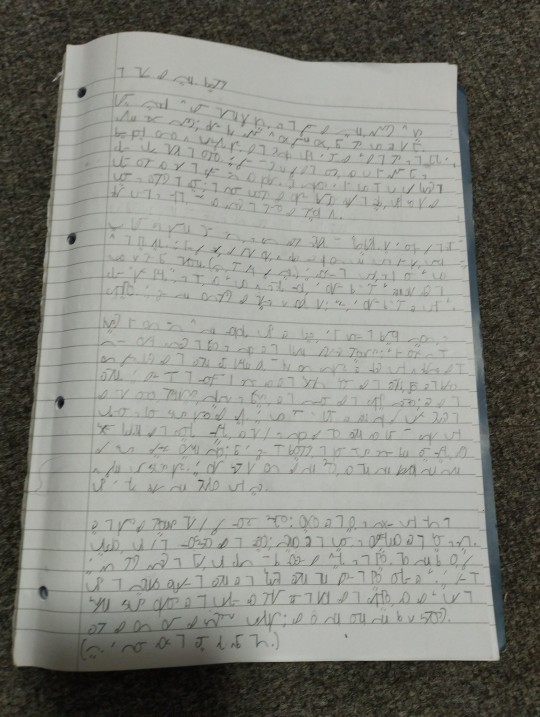
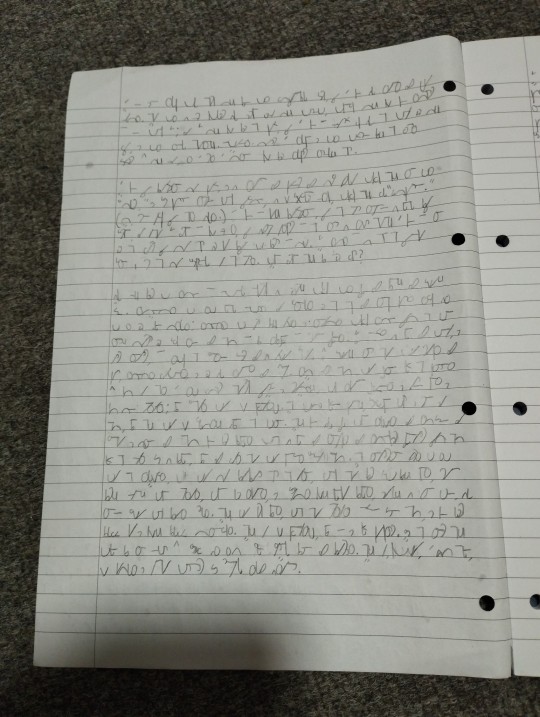
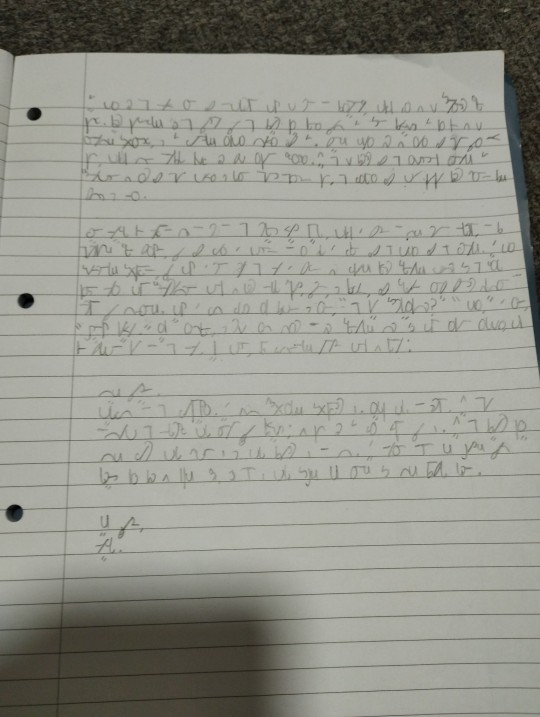
#dracula book#dracula#dracula daily#re dracula#re: dracula#shorthand#fuck the lighting in my room#uhhh yeah my hand is killing me but have some Dracula in shorthand
369 notes
·
View notes
Text
Johnathan writing his next letter to tell Mina that the Count set his other letters on fire:

#but its in shorthand#re: dracula#dracula daily#re dracula#jonathan harker#count dracula#mina harker
154 notes
·
View notes
Text

I know now the span of my life. God help me!
-Johnathan Harker
#Dracula#dracula daily#pitman shorthand#shorthand#may not be accurate as I'm studying Gregg not Pitman
783 notes
·
View notes
Text
On Horror, Queerness, Mirrors, and Dracula



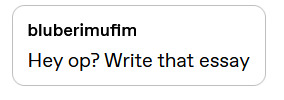

Your wish is my command (you may or may not regret this).
Here’s the thing - I love horror, and I love patterns, and I think the best horror is always in some sense symmetrical. It might not be obvious, but what’s the point of staring into an abyss if you can’t see your own face reflected back? The symmetry itself comes in any number of different twists, whether it is familial, communal, erotic, or individual, and most of these apply to Bram Stoker’s Dracula.
The centre of our novel rests on the Harkers. So, starting with Jonathan - his experience in Transylvania is a twisted version of his life back home. Dracula is reserved but eloquent, seemingly caring and occasionally affectionate, he reads train schedules and they spend hours upon hours in conversation; which is a dark mirror to Jonathan’s train schedule-loving, passionate but serious Mina. It may even be said that the Count is re-enacting a caricature of traditional heteronormative domesticity - he maintains the household, waits on his guest himself, and blows him kisses from the stairs. His possessiveness of Jonathan is the only way a vampire like Dracula is capable of understanding the bond Jonathan shares with Mina. The Count states that he, too, feels love; but he is written by a closeted gay man in the late 19th century, so his imitation of married life is both a lie and a tragedy. He is a shorthand for forbidden, wrong, and corrupting desires.
At the same time, Mina herself also has a same-sex connection in the beginning of the story, and her relationship with Lucy mirrors the relationship between Jonathan and Dracula. They cling to each other, in a sense; despite being excited about the prospect of their impending marriages, there is some trepidation associated with this new stage in life. A common part of a dowry used to be a shroud, simply due to the frequency at which Victorian wives died in childbirth soon after the wedding; and even provided a survival, the transition to married life was still a loss of innocence. As such, Lucy’s affection for Mina is the last expression of her girlhood, and she herself is the personification of Mina’s. Lucy is, therefore, the direct antithesis of the Count; her death and subsequent rising change Mina the same way that Dracula does Jonathan, establishing a firm duality between the Harkers and their respective vampires.
The other characters are reflections of each other, as well; the suitors defend while the brides terrify, Van Helsing wants to preserve life while Renfield wishes to consume it - and even further, the old Hungarian lady cares enough about a stranger to give Jonathan a cross for protection, while Lucy’s own mother lets Dracula into the house herself, selfishly ignorant of her daughter’s needs and the doctor’s orders. Another parallel is drawn again between Jonathan and Renfield, who represents directly what he could have been, had he not escaped from Dracula’s grasp; which makes Renfield’s vehement, last-ditch attempt to protect Mina perhaps all the more poignant. In him, she sees the resilience of Jonathan’s humanity; while he gets to see exactly what she could become after her turning - in Dracula himself. These dualities are integral to the story’s thematic structure, and therefore inextricable from each character’s development.
There is really too much to say about each individual dynamic to fit into one rant, but for the current purposes, I can forgo the details. They all converge as it is on Jonathan and Mina, and thus, the central theme of this story is devotion. If Jonathan had truly broken, like Renfield, Mina would have stayed by his side; and if she had fully turned, like Dracula, he would have adored whatever shred of her still remained. In madness and in death, in happiness and sorrow, in sickness and in health - until the echoes start to sound like wedding vows.
@stripedshirtgay
@bluberimufim
#dracula#dracula daily#jonmina#jonathan harker#mina harker#dracula meta#bram stoker#y'all asked for this#now scream with me bc i've been internally screaming about this for years#it's about the DEVOTION#lucy westenra is mina's innocence#dracula is jonathan's fear of inadequacy#renfield is his humanity#dracula is an evil version of mina i said what i said#that's Partially why jonathan wasn't weirded out enough#like yes yes eccentric old count#but he writes a diary in shorthand#and his fiancee loves train schedules#who's he to judge
493 notes
·
View notes
Text
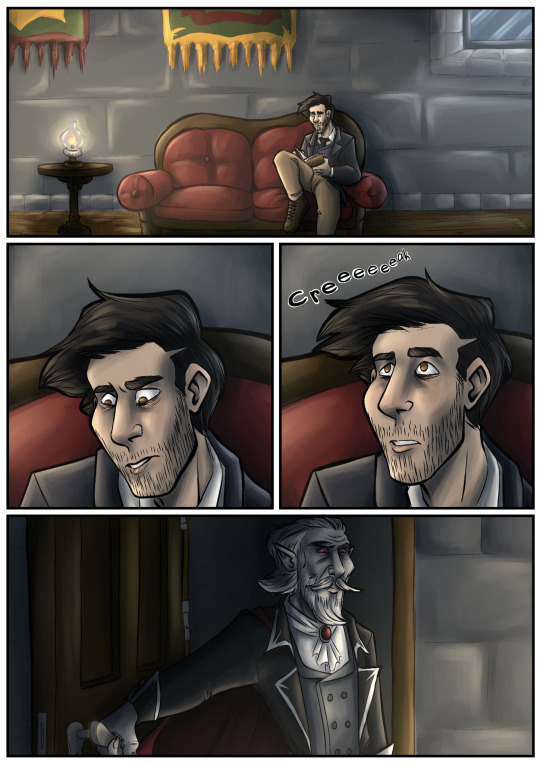

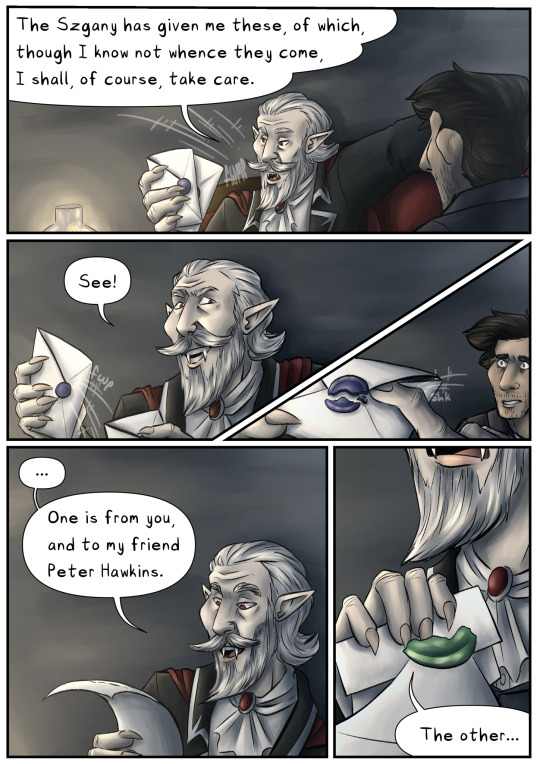
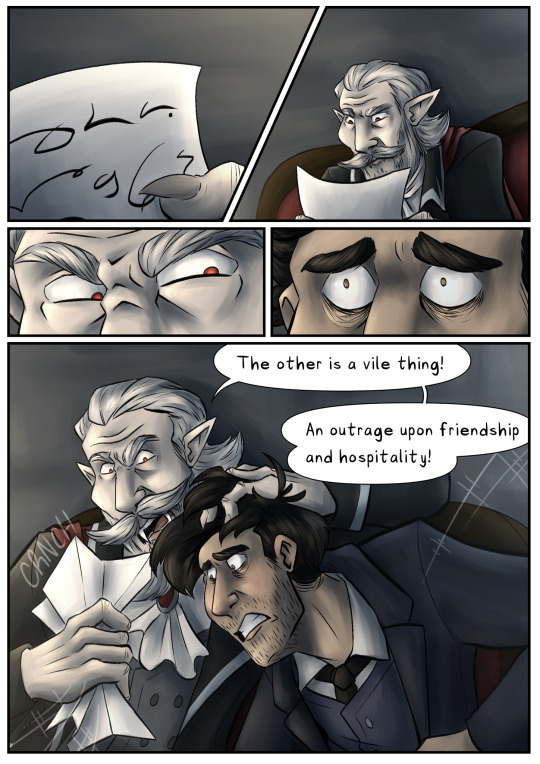

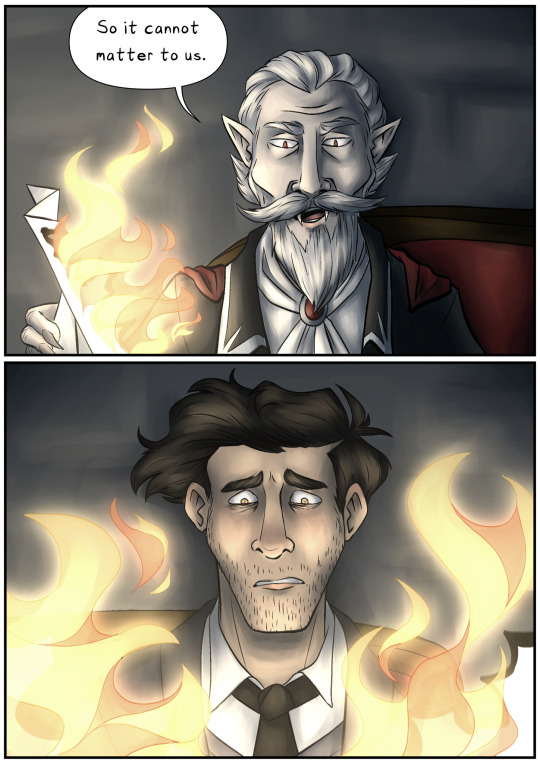
Jonathan Harker’s Journal - May 28th
#ignore the bs shorthand#I wasn’t about to learn how to write in it just for one visual#a funny thing happened while I was working on this#page by page I could see my work getting faster while still staying consistent#the final page took about an hour and a half#while the first probably took like 3 hours#very encouraging for when I eventually start making more longform comics!#anyways I would apologize for how long this took except I’m proud of myself for not pushing myself into burnout like I sometimes do#I hope you enjoy the finished product#dracula daily#dracula daily art#re: dracula#jonathan harker#count dracula#comic#comic art#bonus points for anyone who can figure out which panel I went back and completely redrew before I was done
357 notes
·
View notes
Text
Whilst still asleep she took the paper from her breast and tore it in two. Van Helsing stepped over and took the pieces from her. All the same, however, she went on with the action of tearing, as though the material were still in her hands; finally she lifted her hands and opened them as though scattering the fragments.
Okay, I know in-universe all the originals get burnt up anyway. But certain scenes make me really want to see an adaptation designed to look like scans of all the originals. Including details like tearstains, wrinkles... Lucy's memorandum ripped in two and taped back together.
#dracula daily#dracula daily spoilers#don't ask me how jack's audio would work. or if you would need to read shorthand in order to be able to read jonathan and mina's entries#(actually the answer there is yes. and the 'translation' by each account/entry)
28 notes
·
View notes
Text
Dracula, May 28th: Here he caught sight of the strange symbols as he opened the envelope, and the dark look came into his face, and his eyes blazed wickedly—"the other is a vile thing..."
Dracula, Sept 25th: He opened it, and for an instant his face fell. Then he stood up and bowed. "Oh, you so clever woman!" he said.
a quick contrast here in how the opposing sides view shorthand, a message they cannot read: Dracula is furious, he is cruel; how dare Jonathan withhold information, how dare he think he has any power in his situation, how dare think he have anything beyond what Dracula chooses to give him. He promptly burns the letter, in front of him, to show Jonathan how helpless he is Van Helsing, in desperate need of this information, and though upset - gracefully accepts this joke, and asks for help. He acts charmingly, he doesn't use his Stern Talking to Women Voice (c) to tell Mina she must not do this, they part as the start of dear friends
#dracula#dracula daily#no strong points here just musing on this being the second time somebody else saw shorthand#Mina: I played a joke on the wonderful professor I showed him shorthand#Jonathan: ...and what did he do?#Mina: told me I was clever and asked for my help in translating it#Jonathan: oh he *is* wonderful
146 notes
·
View notes
Note
"The dear girl was more affectionate with me than ever, and clung to me as though she would detain me; but there was much to be talked of and I came away. Thank God, the ceasing of telling things has made no difference between us."
I don't want to blame him too much for drawing the conclusion that since Mina tries to sleep with him today then it means she isn't mad at him and there's no difference like he feared, but oh Jonathan everything is different between you... And it'll never be the same.
I still can’t parse just how much is him trying to convince himself that This is Fine VS accepting Mina’s own performance of This is Fine (they’re both acting out parts they think are required right now and they’re unfortunately both swallowing it, ironically trusting each other’s performances and Van Helsing’s orders more than real gut feeling) VS heavily filtering his actual thoughts because he knows whatever he writes is now potentially going to be read by others in the future ~as needed~.
The last one is especially getting to me when it comes to his and Mina’s writing from Sept 30th on. They are both contributors, past present and future, to the Documents. They have a live and written performance to put on. So I wonder how much they’re really keeping bottled up off of the page.
#at least in Castle Dracula Jonathan could get away with constant shorthand and write with no fear of snooping#Mina had the same freedom pre-Van Helsing#but between basically getting voluntold to transcribe Everything to be shared with Everyone#AND being muscled into the Appropriate Roles (c)#neither Harker has gotten to stop acting on their new friends’ behalf for almost half a week#jonathan harker#mina harker#dracula#dracula daily#re: dracula
24 notes
·
View notes
Text
Just plain babbling about shorthand
Since reading Dracula might be the first time or one of the first times that people have heard about shorthand, I thought I'd take this thin excuse to infodump. Because I find it fascinating and want to share. (Warning ahead of time, watch out for how many darn times I say "for example" in this post).
For some background, shorthand systems of writing have existed for millennia, but in the English-speaking world, the two most common and well-established systems of shorthand are Pitman and Gregg. Odds are that the Harkers are writing in Pitman. It's the older system (created in 1837) and is to this day more common in England and the Commonwealth. Gregg is more common in America and was introduced in 1888, either only a few years after or a few years before Dracula takes place. There were also numerous other less popular systems floating around at the time.
Pitman and Gregg and most other shorthand systems are phonetic. (Teeline is a more modern shorthand system based on a simplified alphabet, which is also quite popular). Simply put, each sound is reduced to one stroke of the pen. In Gregg, for example, the sound "k" (which includes the letter "c) is a medium-sized forward arch, "a" is a large circle, and "ch" is a short, downward diagonal line. So, instead of writing "catch" you just combine the symbols for "k-a-ch." Instead of "become" you just write "b-k-m." (These "words" are known as outlines).
Some shapes represent multiple sounds. For example, a small circle stands for the vowels in "bit," "bet," and "beet." A large circle stands for the vowels in "cap" and "cape." This might sound like it would be confusing rather than simplifying, but it's generally clear from the context.
There are a bunch of other means which allow you to write more quickly. Common words are further shorted into "brief forms." For example, "the" is represented by "th," "after" by "a-f," and "were" by "e-r." Some common endings or beginnings are also abbreviated, so that "sh" at the end of a word can stand in for "-tion" and "f" can mean "for-" or "fore-" at the beginning of a word. Thus, "Permission" is "p-r-m-sh" and "forgive" is "f-g-v." Common phrases can be combined into a single outlines. For example, for "to be" you can write "t-b" instead of "t-u[space]b." "I have not been able" can be "a-v-n-b-a." (The large circle "a" is the brief form for the word "I" in one of the rare quirks of Gregg that isn't basically intuitive).
Pitman Shorthand is very similar to Gregg (or, more accurately, Gregg is similar to Pitman). Other than using different symbols (for example, in Pitman "k" is a short forward line) Pitman differs from Gregg mostly by its use of the thickness of strokes to differentiate sounds. For example, "g" is also a short forward line, with the only difference being that the line for "g" is drawn thicker than "k."
I learned shorthand absolutely because of Dracula, though for convenience I learned Gregg. As of right now, I'm pretty out-of-practice, and honestly I was never particularly fast. (At my best, I probably was on average as fast writing shorthand as cursive longhand; I think faster than printing, though).
If you're at all interested, I really recommend learning some form of shorthand. It's useful in note-taking or when you don't want people to be able to read your writing (if, you know, you're kidnapped by a vampire or trying to write fanfic at work). It's also just a fun hobby and a nifty skill to be able to say you have.
In my opinion, if you want to learn shorthand, Gregg Simplified is a solid option, because the materials are accessible and the system is a good middle-ground between easiness to learn and quickness to write. I taught myself just following along with the Gregg Shorthand Manual Simplified. The book is broken up into 67 short "lessons." I did one or two lessons a week, maybe a few hours of work, and I was "fluent" in less than a year. I also bought a Gregg Simplified Dictionary, but all you need is the Manual.
(Note that the manual is written both assuming you're probably some kind a secretary and in the fifties. So, you'll learn brief forms for super-useful phrases like "dear sir" or "remit." For practice, they have you read and copy these sample letters in shorthand, and it's almost hilarious how almost all the letters to men are about business matters and the letters to women are advertising sales. There is one spectacular letter that's a man writing to a newspaper to cancel his subscription, because he's moved into a house in the suburbs with another man who gets the same paper. I'm legit tempted to go through the manual again just to find that letter.)
Fun fact! The fastest shorthand stenographer ever recorded wrote faster than the fastest typist.
Also fun fact! It's not uncommon for individual people to invent their own brief forms based on words that they use commonly. So, Jonathan might have been writing "c-a-r-p" (or the Pitman equivalent) for "Carpathian" or Mina writing "t-b" for "Whitby" or both of them writing "v-a-m" for vampire. And I'll bet credits to navy beans they had specific brief forms for their favorite trains.
#dracula#dracula daily#shorthand#gregg shorthand#pitman shorthand#the gregg book also is certain that you pronounce the “h” in “wh” words#maybe you still do#but probably you don't#*marge simpson potato meme but with me and shorthand*
241 notes
·
View notes
Text
So. Dracula Daily for May 28th.
Look. I know Dracula can’t read shorthand (if memory serves).
But does he even know what it is?
We got his whole humblebrag back on May 7th about how he’s ~so bad~ at English.
HOWEVER.
Hear me out.
Wouldn’t it be hysterical if he saw Jonathan’s letter in shorthand and was just like…
What the fuck is this? Is this fucking English?!
And then his vampire wives have to comfort him while he nurses his wounded ego.
OR.
Is he just pacing back and forth in front of his vampire wives, venting to them like:
“Kids these days and their lazy shorthand! Back in my day we crawled up AND down our castle walls in lizard fashion and we wrote out every single letter!”
No?
Just me?
Oh, well.
ꉂ (´∀`)ʱªʱªʱª
#dracula daily#why am I in the year of our lord 2024 googling ‘can dracula read shorthand’?#this is my design#hismercy’s musings
21 notes
·
View notes
Text
"How dare you touch him, any of you? How dare you cast eyes on him when I had forbidden it? Back, I tell you all! This man belongs to me! Beware how you meddle with him, or you'll have to deal with me." The fair girl, with a laugh of ribald coquetry, turned to answer him:—
"You yourself never loved; you never love!" On this the other women joined, and such a mirthless, hard, soulless laughter rang through the room that it almost made me faint to hear; it seemed like the pleasure of fiends. Then the Count turned, after looking at my face attentively, and said in a soft whisper:—
"Yes, I too can love; you yourselves can tell it from the past. Is it not so? Well, now I promise you that when I am done with him you shall kiss him at your will. Now go! go! I must awaken him, for there is work to be done."
I can't help but wonder how the 1890s audience reacted to Dracula's very unhetero behaviour here...
#Dracula#Dracula Daily#I am TELLING you the gothic genre is for the girls and the gays#and by gay in this case I mean Queer but in the shorthand way that lets me do a fun alliteration#Goths Girls and Gays
21 notes
·
View notes
Text
Mina is so clever and diligent and kind (and funny) she just became Van Helsing’s favourite student without even being his student
#re: dracula#dracula daily#she even handed in homework….#highkey love that she gave him the shorthand diary bc he has exactly the sense of humour to appreciate that
41 notes
·
View notes
Text
I gotta go learn shorthand in case I need to hunt vampires someday
107 notes
·
View notes
Text
Seven Years Later: Epilogue



Read here, full story here.
Note — Seven years ago we all went through the flames; and the happiness of some of us since then is, we think, well worth the pain endured. It is an added joy to Mina and to me that our boy's birthday is the same day as that on which Quincey Morris died. His mother holds, I know, the secret belief that some of her brave friend's spirit has passed into him. His bundle of names links all our little band of men together; but we call him Quincey. In the summer of this year we made a journey to Transylvania, and went over some of the old ground which was, and is, to us so full of vivid and terrible memories. It was almost impossible to believe that the things which we had seen with our own eyes and heard with our own ears were living truths. Every trace of all that had been was blotted out. The castle stood as before, reared high above a waste of desolation.
When we got home we were talking of the old time—which we could all look back on without despair, for Godalming and Seward are both happily married. I took the papers from the safe where they had been ever since our return so long ago. We were struck with the fact, that in all the mass of material of which the record is composed, there is hardly one authentic document; nothing but a mass of typewriting, except the latter note-books of Mina and Seward and myself, and Van Helsing's memorandum. We could hardly ask any one, even did we wish to, to accept these as proofs of so wild a story. Van Helsing summed it all up as he said, with our boy on his knee: We want no proofs; we ask none to believe us! This boy will some day know what a brave and gallant woman his mother is. Already he knows her sweetness and loving care; later on he will understand how some men so loved her, that they did dare much for her sake.
Jonathan Harker.
#ic / mina’s diary#solos / knowledege is stronger than memory#muse: jonathan harker#dracula daily#re: dracula#solo#solos#drabble#drabbles#jonathan x mina#jonathan harker / kept in shorthand#jonmina#strange love / queue
3 notes
·
View notes
Text
"Doctor, you don’t know what it is to doubt everything, even yourself. No, you don’t; you couldn’t with eyebrows like yours.” He seemed pleased, and laughed as he said:— “So! You are physiognomist."

Not for the first time, I'm thinking about the physiognomy in Dracula, and how many readers the first time through Dracula Daily seemed to think it was a bizarre old-fashioned and outdated philosophy. Like... are y'all really going to claim you've never seen anyone in our modern generation ascribe moral significance to the shape of someone's face? Because I straight-up do not believe you.
#dracula daily#see the KKK members are ugly. because they're morally unsound. bad people aren't pretty; and pretty people aren't bad.#if your face is a different shape from the protagonist's than that indicates that you are a Moral Degenerate. which is bad.#y'all have never seen 'chinless' applied as an insult to someone's character?#you've never seen the size of someone's ass or dick treated as shorthand for their personal desirability or virility?#you've never seen anyone claim they could tell someone else was unpleasant because of the way their eyes or eyebrows or mouth was shaped?
1 note
·
View note
Text
Not to be a bitch or anything but. Since people are reading Dracula daily again: if the shorthand tag becomes filled with non-shorthand Dracula content again I’m gonna start biting I’m so serious.
If Dracula is your intro to shorthand, and you’re thinking about learning it, cool ! Have fun ! But I’m literally begging you to stop tagging content that is only tenuously related to shorthand as “shorthand”. Please I’m so tired it’s such a small tag and it’s so easy for it to get completely overrun
#get it. I’m gonna start BITING ? geddit?#fun lil joke for the Dracula fans#pitman shorthand#shorthand#dracula#dracula daily#ceci says stuff
16 notes
·
View notes